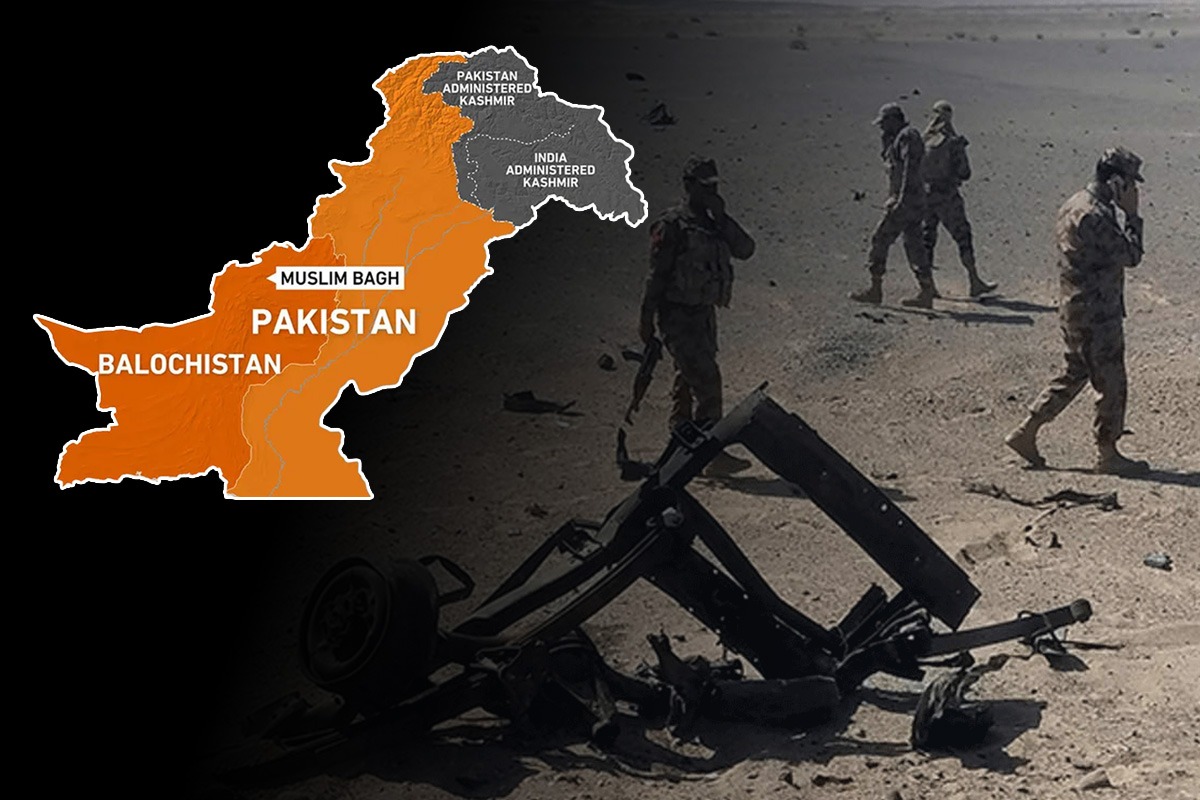


Last month, Pakistan and China faced a series of attacks targeting areas connected to the Pakistani military and Chinese interests in Balochistan. The heart of the China & Pakistan Economic Corridor (CPEC), Gwadar, and the Pakistan Army’s Naval Base were hit in two major attacks, with Pakistani military installations and companies associated with the army being the main targets.
On March 20th, the Gwadar Port Authority Complex was attacked, followed by another severe attack on Pakistan’s second-largest naval base in Turbat five days later, conducted by the Majeed Brigade of the Baloch Liberation Army (BLA). These attacks persisted for several hours.
In the Gwadar attack, Pakistani intelligence agencies ISI and MI offices were targeted. However, questions arose about the effectiveness of security measures as the Majeed Brigade’s operation continued despite heavily guarded security zones, raising concerns about the protection of Chinese engineers and workers associated with the CPEC projects.
In Pakistan, a division is present to safeguard Chinese citizens working on CPEC projects, led by a Pakistan Army Major General. Multiple checkpoints with hundreds of personnel are stationed in Gwadar for the protection of CPEC personnel, along with surveillance cameras installed in the port and its surroundings.
Following past attacks, former Pakistani Ambassador to China, Moin ul Haque, expressed efforts to address security issues concerning Chinese citizens and CPEC projects. He stated, “We have made significant efforts to resolve security issues for Chinese and CPEC projects. For instance, we have established a force of 3000 for the protection of CPEC projects, including two army divisions.”
The responsibility for the Gwadar Port Authority Complex attack was claimed by the BLA, one of the most active armed groups in Balochistan. BLA Spokesperson Jeeyand Baloch stated that this attack was carried out under the operation “Zir Pahazag” by BLA’s Majeed Brigade.
Jeeyand Baloch mentioned, “This attack sends a message to all foreign investors who intend to invest in Gwadar and other areas of Balochistan believing false assurances from the Pakistani state and army. If BLA can attack the most secure and vital secret offices of the Pakistani state and inflict losses on enemy soldiers, then it can easily access any city or area.”
These attacks occurred shortly after the BLA targeted Pakistani military headquarters and other military and governmental installations in the city of Mach in a simultaneous attack, maintaining control of the city for two days.
Notably, the Majeed Brigade’s attacks have been intensifying with time. In its last three attacks, a total of 24 ‘fidayeen’ participated. These ‘fidayeen’ hail from various regions, including Quetta, Kech, Gwadar, and Nawabshah (Sindh), indicating that Baloch youth have already decided ‘homeland or coffin.’ Among these martyrs are individuals who were writers, poets, and highly educated.
The assistance of the alliance group of Baloch armed groups, Baloch Baloch Raji Ajoi Sangar (BRAS) was sought by the BLA in the operations: Zir Pahazag in Turbat and Dara-e-Bolan in Mach. Following the Majeed Brigade, BRAS has also intensified attacks on the Pakistani military throughout Balochistan. The visible support for the ‘fidayeen’ attacks from other pro-independence organizations in these operations indicates a clear trend towards intensifying attacks.
In week, two major attacks on Pakistani military installations are nothing short of a nightmare for the Pakistani army and China. These attacks demonstrate that Baloch insurgents can target sensitive locations anytime, anywhere. These attacks not only concern China but also send a clear message to investors in Balochistan that their investments are not safe here.
Regarding the recent attacks on Chinese engineers associated with CPEC in the Besham area of Khyber Pakhtunkhwa province, Chairman of the Senate Standing Committee on Defense, Mushahid Hussain, told the BBC, “Whenever the Prime Minister and President of Pakistan meet with Chinese leaders, the security of Chinese citizens remains a priority for Chinese leaders.”
These attacks undoubtedly raise concerns for Chinese authorities that if Pakistan’s sensitive offices and naval bases are not safe, how would it protect the Chinese engineers and workers in the region? Following the recent Gwadar attack, authorities will likely increase the number of checkpoints and security personnel, while suggestions for imposing fences in the city are also under consideration by the Pakistani government. However, residents have already opposed dividing the city into two parts.
The evolving intensity and strategy of attacks by Baloch insurgents indicate a shift in their policy and tactics. Baloch insurgents are grooming their ‘ranks’ professionally, leading to prominent attacks in recent years, indicating the escalating war in Balochistan, which does not reflect well on Pakistani military authorities, making it a dreadful nightmare for them.
The author is a journalist with six years of experience covering the conflict in Balochistan, operating from the war zone itself.